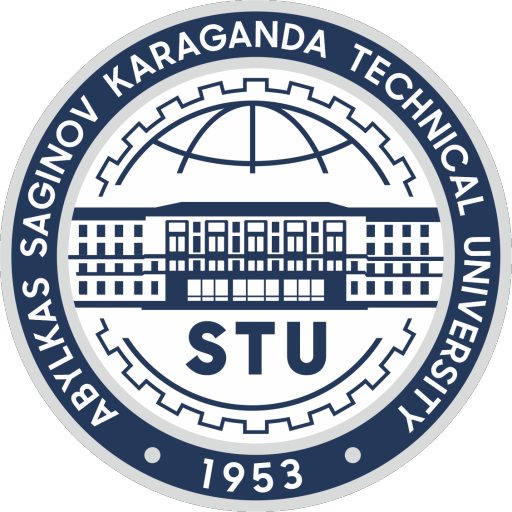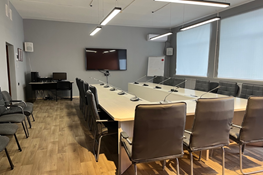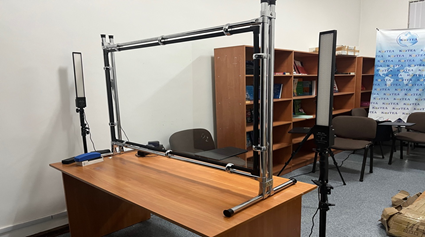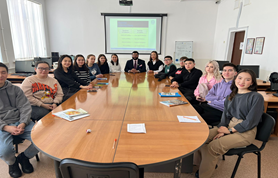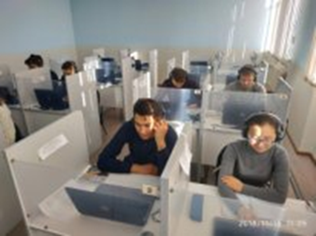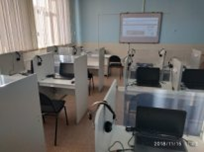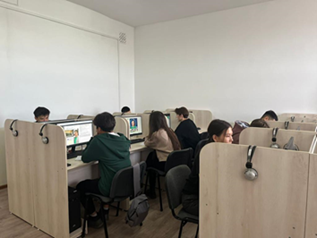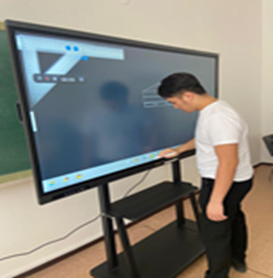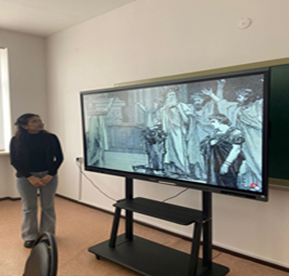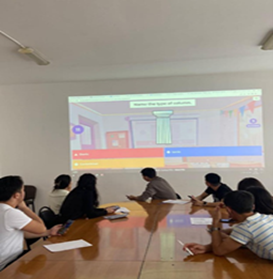Department of Foreign Languages
- Schedule of mutual attendance of classes Department of Foreign Languages 2024-2025 academic year 1 term
- The Quality Assurance Committee of FLD work plan for the 2024-2025 academic year
- The ELR certification schedule of the Foreign Languages Department for the 2024-2025 academic year
- The workplan of the scientific and methodological seminar of Foreign Languages Department for the 2024-2025 academic year
- SCHEDULE of holding master classes in the full term of the 2024-2025 academic year
- The release of educational and methodological literature plan of the FLD for the 2024-2025 academic year
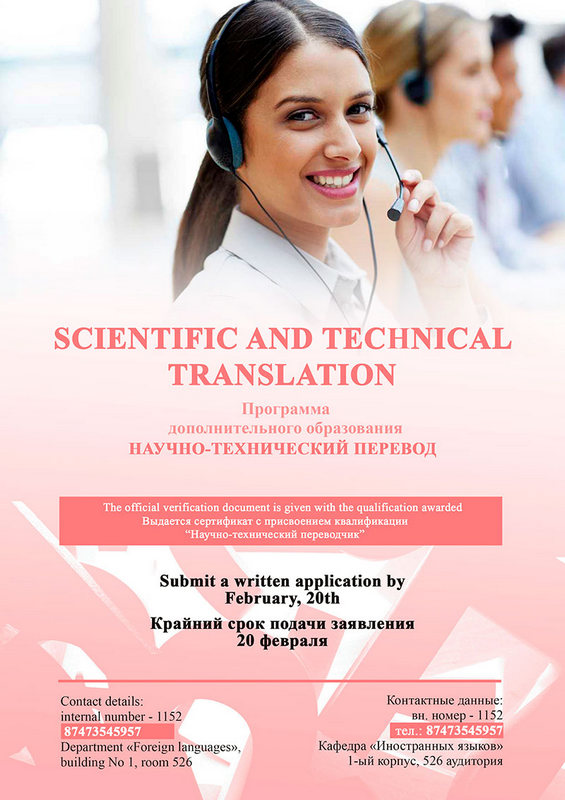
The educational program is aimed at training specialists in the field of scientific and technical translation in order to improve their professional qualifications and acts as an additional education for technical specialists.
The goal of the program is an in-depth study of a foreign language by students as a mean of communication in professional activities and the formation of translation competencies in accordance with state and international educational standards.
Learning objectives:
-improving the proficiency level in a foreign language in oral and written forms;
-forming the theoretical base of the translation apparatus;
– study the methods and techniques leading to the achievement of the adequacy of technical translation;
– improving skills and techniques of professional and technical translation, including the digital platforms use;
– development the skills of the professional use of dictionaries, databases, modern information technologies in the field of technical translation;
– formation the skills in processing scientific and technical texts through the preparation of annotations and abstracts;
– development the skills to search for terminological equivalents, translation correspondences;
– formation the skills of active-cognitive, independent work with additional scientific and technical literature.
Training is carried out in two areas of translation: translation and consecutive interpretation. Accordingly, at the end of the program, students can perform the following types of professional activities:
- written translation of technical texts and documents;
- interpretation of negotiations, international meetings, conferences in professional communication.
CRITERIA FOR SELECTING STUDENTS FOR TRAINING IN GROUPS OF “SCIENTIFIC AND TECHNICAL TRANSLATION” ADDITIONAL PROGRAM
All interested KTU students who speak English at level B1 and above are selected for the group in accordance with the Common European Framework of Reference (CEFR).
The selection of students is carried out on the basis of placement testing.
Classes in a group begin from the 2nd semester of the 1st course.
The result of the educational program “Scientific and Technical Translation” is the DEFENDING DIPLOMA WORK IN ENGLISH LANGUAGE, the student must demonstrate not only professional knowledge in his specialty, but also the ability to use English in professional activities. The teacher of the profiling department acts as the head of the diploma work in the specialty, and the teacher of the department of foreign language acts as a consultant.
AT THE COMPLETION OF THE TRAINING, students who successfully completed the course in the amount of 616 hours receive a certificate with the right to carry out the activities as an interpreter in the field of professional communication.
For the 2020-2021 academic year, the number of students enrolled in “Scientific and Technical Translation” additional program courses is 47 people:
1st course – 5 people; II course – 21 people; III course – 12 people; IV course – 9 people.
The course is taught by HIGHLY QUALIFIED TEACHERS with experience of international internships.
Classes are currently being held online using scientific educational platforms and online platforms.
Educational and methodological work of the FLD Department
The Quality Assurance Committee of Foreign Languages Department is guided by the Law of the Republic of Kazakhstan “About Education”, the Law “About Languages in the Republic of Kazakhstan”, the State mandatory standards of Education of the Republic of Kazakhstan, “Standard rules of activity of organizations of higher and (or) postgraduate education (Order of the Ministry of Education of the Republic of Kazakhstan dated 30.10.2018 No. 595)”, “Rules of organization of the educational process on credit technology of training” (Order of the Ministry of Education and Science of the Republic of Kazakhstan dated 20.04.2011 No. 152), regulatory documents, the Charter of the University, the Regulations on the Academic Council of the University and this Regulation.
The Quality Assurance Committee main activities:
1) carrying out activities for the study, implementation and dissemination of advanced pedagogical experience and informatization of education of the FLD Department ;
2) analysis of educational and methodological and scientific-methodical work organization impact on the students current academic performance;
3) development of independent work of students methodological support ;
4) development of methodological support for the annual formation of a contingent of students, taking into account the profile, level of training and capabilities;
5) monitoring the provision of educational process with educational literature and scientific and methodological developments in the disciplines of the FLD Department ;
6) organization of long-term planning of the educational process of the Department of IIA, considering the demographic, economic, industry situation, as well as emergency situations by region and, in general, by country.
7) development and implementation of educational and methodological and scientific-methodical documentation on new learning technologies, including credit and distance learning technologies.
8) Development and participation in competitions of scientific projects, scientific and methodological developments and the implementation of their results in production, in the educational process of the Department of IIA;
9) organization of various types of research in order to create a database for forecasting the need for specialists in existing and promising areas of training;
10) development, implementation, and dissemination of didactic-methodical, educational and material means of training.
11) monitoring the provision of educational process with educational literature and scientific and methodological developments.
12) making proposals for the unification of curricula in related specialties in the disciplines of the FLD Department.
13) making proposals to improve regulatory legal documents, classifier of specialties of higher and postgraduate education, state mandatory standards of education;
14) modern educational and methodological, scientific and methodical, didactic materials and software of automated learning systems, information support systems, information and library systems introduction into the educational process of the Department of the IYA;
15) working training programs development, participation in the preparation of projects of standard training programs;
16) examination of working curricula and working curricula taking into account the requirements of state mandatory education standards;
17) development of textbooks, educational and methodical and scientific-methodical complexes, teaching aids, including on electronic media, and didactic materials;
18) development, implementation and dissemination of educational and methodological and scientific-methodical documentation on new teaching technologies of the FLD Department ;
19) the quality of teaching, the level of educational achievements of students of the department analysis;
20) organization and holding of thematic scientific, scientific and methodological seminars, conferences, webinars, meetings on improving educational and methodological and scientific-methodical work;
21) organization, coordination, analysis of the content and form of research, scientific and methodological work of students, undergraduates of the FLD Department ;
22) development and participation in competitions of scientific projects, scientific and methodological developments and the implementation of their results in production, in the educational process of the Department of IIA;
23) the training of undergraduates in the specialties of the disciplines of the FLD Department organization and implementation
The Quality Assurance Committee of the FLD Department main tasks are:
- Organization of pre- and post-monitoring of the quality of methodological support of the educational process;
- Planning, organization of expertise and recommendation for the publication of educational, methodical and scientific-methodical literature, manuals and other materials published at the University;
- Study, implementation and dissemination of best practices in the organization and improvement of educational and methodological and scientific-methodical work at the University;
- Preparation of analysis and recommendations for the implementation of the results of methodological developments in the educational process;
- The educational and methodological work of the department coordination and control
- Control of the organization of work on the introduction of new and improvement of existing technologies, methods, teaching tools at the FLD Department ;
- Coordination of work and control over the improvement of the scientific and methodological potential of the teaching staff of the department Participation in the certification of University employees.
- Development of proposals on the development of education and the formation of priority directions in its implementation;
- Participation in the certification of University employees.
Material and technical resources
The Department of foreign languages has 21 lecture rooms, 1 conference hall, 1 Creative Learning laboratory, 1 computer room and 2 language labs. The Department of foreign languages is equipped with modern teaching facilities and annually conducts work on its improvement. So, over the past 3 years, in order to ensure the modernization of the educational process, such modern technical equipment as conference room equipment, language equipment, projectors, a desktop board with RGB illuminated glass, interactive panels were purchased, as well as computers and laptops were updated.
The conference hall (room 521) is a fully functioning complex, thoroughly equipped with multimedia equipment systems (Angekis FULL HD Blade VS controlled camera, USB camera with control support, Led TV Screen, sound amplification of the hall, BOSCH conference system) and helps in solving a number of important tasks: holding meetings with research partners, approbation of research results and practical application of scientific and methodological provisions on the research topic, conducting practical classes, both online and offline, scientific and practical seminars and meetings of the department.
The Creative Learning laboratory (room 522) is equipped with a desktop board with RGB glass illumination, which is used for video recording of online content.
The computer room (room 517) is equipped with 11 computers, a projector and a screen.
The language laboratory (room 518) is room which is equipped with a complex of audio equipment that allows to create optimal conditions for independent work of students to master the skills of oral speech. The language room (room 425) is equipped with an interactive board 82 IQBoard and a screen, as well as 17 laptops.
Some classrooms (515, 516, 519, 421.) are equipped with a projector and an interactive whiteboard, which allows teacher to diversify the forms of work, the activities of students, activate attention, increase the creative potential of the individual, motivation for successful study of educational material and enables the teacher to make the learning process vivid, visual and dynamic.
Scientific and technical translation
The educational program is aimed at training specialists in the field of scientific and technical translation in order to improve professional qualifications and acts as additional education for technical specialists.
The goal of the program is the in-deep study by students of a foreign language as a means of communication in professional activities and the formation of translation competencies in accordance with state and international educational standards.
Learning Objectives:
— improving the level of foreign language proficiency in oral and written forms;
— formation of a theoretical basis for the translation apparatus;
— study of methods and techniques leading to achieving the adequacy of technical translation;
— honing the skills and techniques of professional and technical translation, including on the basis of digital platforms;
— development and development of skills in the professional use of dictionaries, databases, modern information technologies in the field of technical translation;
— developing skills in processing scientific and technical texts through the preparation of annotations and abstracts;
— development of skills in searching for terminological equivalents and translation correspondences;
— formation of skills of active-cognitive, independent work with additional scientific and technical literature.
Training in this program is carried out in two areas of translation: written translation and consecutive interpreting. Accordingly, upon completion of the program, students can perform the following types of professional activities:
– written translation of technical texts and documents;
– interpreting of negotiations, international meetings, conferences in professional communication.
CRITERIA FOR SELECTION OF STUDENTS FOR STUDYING IN GROUPS OF ADDITIONAL EDUCATIONAL PROGRAMM “SCINETIFIC AND TECHNICAL TRANSLATION”
All interested KTU students who speak English at level B1 and above in accordance with the Common European Framework of Reference (CEFR) are selected for the group.
The selection of students is carried out on the basis of entrance testing (placement testing) and interviews.
Group classes begin in the 2nd semester of the 1st year.
The result of the educational program “Scientific and Technical Translation” is the DEFENSE OF THE DEGREE THESIS IN ENGLISH. During the defense, the student must demonstrate not only professional knowledge in his specialty, but also the ability to use English in his professional activities. The teacher of the major department acts as the supervisor of the thesis in the specialty, and the teacher of the foreign language department acts as a consultant
AT THE COMPLETION OF THE TRAINING, students who have successfully completed a course of 616 hours receive a certificate with the right to act as a translator in the field of professional communication.
For the 2023-2024 academic year, the number of students enrolled in additional advanced scientific and technological progress courses is 23 people:
II course – 11 people; III course – 12 people.
